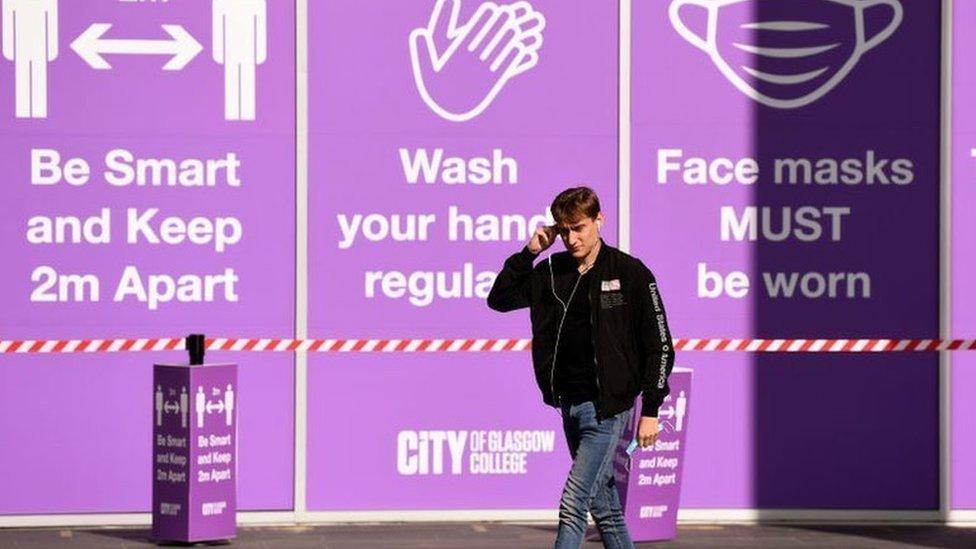Covid in Scotland: Curfew could be 'fatal blow' to some pubs and bars
- Published
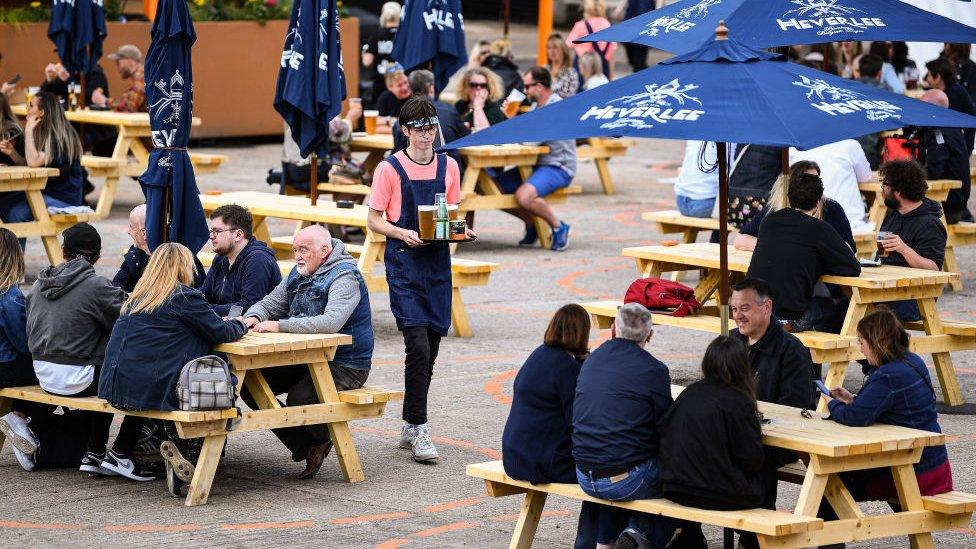
The latest restrictions on bars, pubs and restaurants could be a "fatal blow" for many businesses across Scotland, the hospitality industry has warned.
They say the 22:00 curfew - in addition to a swathe of other rules - will dent the finances of late-night venues, putting more jobs at risk.
And they have asked for evidence that Covid-19 is spreading in pubs and bars.
Deputy First Minister John Swinney said the measures were needed to tackle a lack of distancing in some venues.
He told BBC Radio's Good Morning Scotland the virus was being transmitted in households and "to more limited extent" in hospitality settings.
At the daily briefing, Nicola Sturgeon said she may have taken the decision to close hospitality if the Scottish government had the power to borrow money or extend the furlough scheme, enabling them to safeguard jobs.
The curfew comes a week after the "rule of six" came into effect in Scotland, limiting gatherings in pubs and restaurants to no more than six adults from two households.
They are also forbidden from playing background music, must enforce strict rules on hygiene and distancing, and record customers details for track and trace data.
Willie Macleod, of UKHospitality in Scotland, said the latest restrictions were a "potentially fatal blow" for many business.
"In isolation, they may appear moderate, but the cumulative effect is going to be hugely damaging," he said. "Consumer confidence is going to take another hit and we cannot hope to recover while confidence remains low."
He said both the UK and Scottish government should announce a package of financial support, including extending the furlough scheme, "otherwise our sector is facing ruin"
How will the new rules affect businesses?
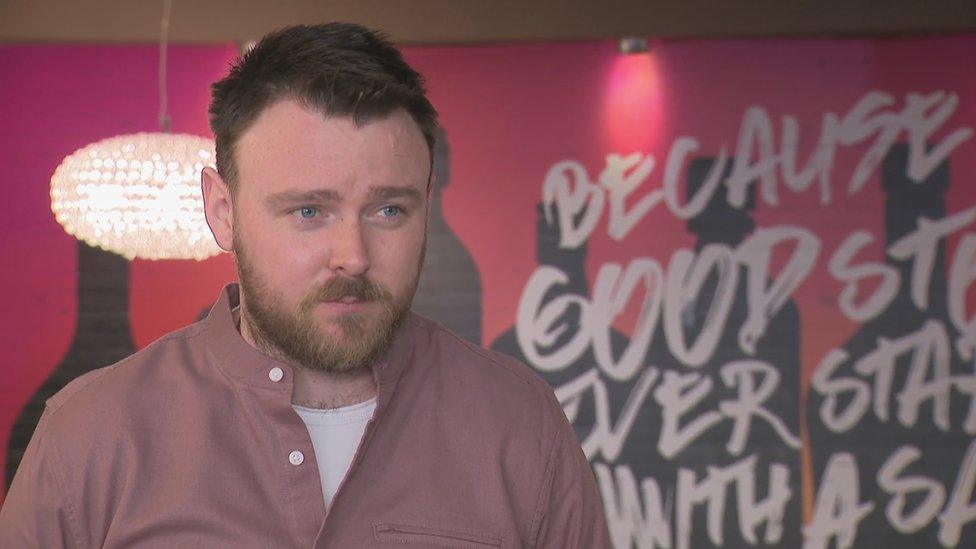
Stuart McPhee said he wanted to safeguard the jobs of his staff
The curfew is a "double whammy" for the licensed trade in Aberdeen, according to Stuart McPhee, who runs the city's Siberia bar and hotel.
It was shut for three weeks in August - alongside every other pub and bar in the city - following an outbreak of Covid-19 cases linked to nightlife.
He said the early closing time would wipe out a quarter of the business' weekly turnover.
Admitting frustration, he said: "We've just come out of a localised lockdown, which the restrictions in place had the effect of bringing an outbreak under control, and now we're seeing further restrictions coming into an already over-regulated environment.
"I think it's going to make trading and business extremely difficult in the coming weeks."
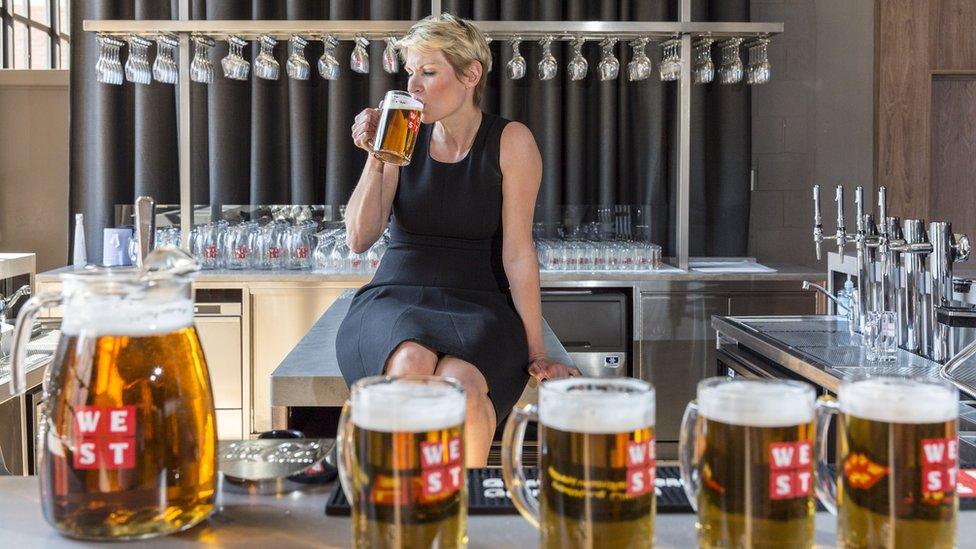
Petra Wetzel said she would like to see tougher punishments, rather than more regulations
Addressing Holyrood on Tuesday, Nicola Sturgeon said she hoped the new restrictions would not be in place for six months - and they would be reviewed after three weeks.
Despite that, Petra Wetzel, who owns West Brewery in Glasgow, is concerned they could badly affect trade during the traditional Christmas party season.
She predicted that some businesses would not survive until January in the current climate.
Speaking to BBC Radio's Good Morning Scotland, she asked why the entire industry had to be "punished" for the actions of those who were not obeying existing rules.
"I would like to see tougher measures for publicans and private individuals who are flouting the rules, rather than punishing everyone else," she said.
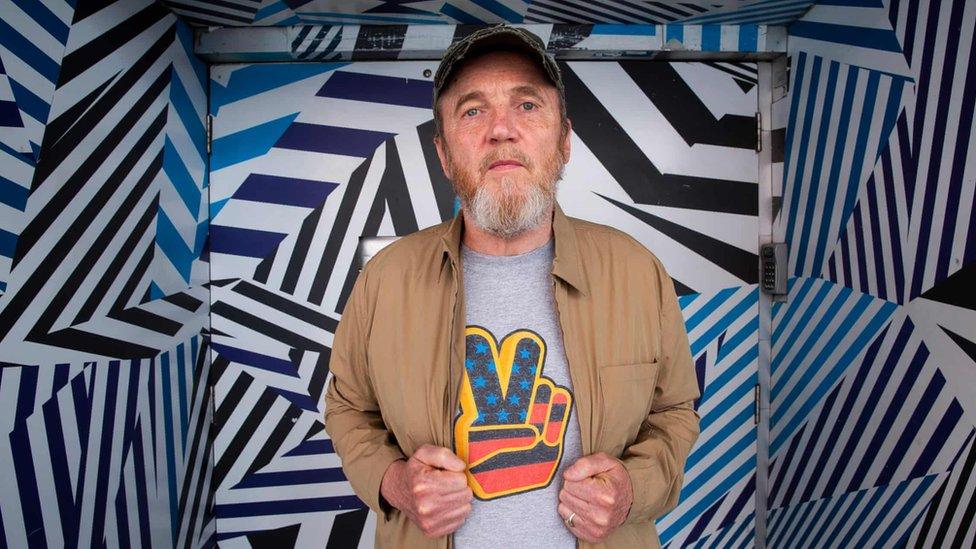
Mike Grieve, the managing director of Glasgow's Sub Club warned that the new rules will drive many people behind closed doors into illegal and unregulated gatherings.
"We absolutely respect the need for public health to be the number one priority, but these measures simply don't make sense. The evidence is clear. The main transmission mechanism is in the home - not in hospitality settings," he said.
"With more onerous restrictions already in place in Scotland's pubs and restaurants, it's difficult to understand why this sector is attracting so much of the focus."
Mr Grieve, who is also the chairman of the Night Time Association Industries Scotland, said the atmosphere of bars, restaurants and venues had already been affected by the music ban and were now "threatened with extinction".
"The hospitality sector in Scotland has been at the forefront of managing Covid-safe environments with operators investing heavily in infrastructure and health and safety training for staff to achieve this," he added.
"We predict that these latest restrictions will drive more people behind closed doors for unregulated illegal gatherings and crowded house parties. Meanwhile our sector is left abandoned."
What is the government saying?
In her daily briefing on Wednesday, Ms Sturgeon said the aim of the curfew was to limit the amount of time people spend in licensed premises.
She said the move would limit the spread of the virus "in an environment where we know there are higher risks" while still allowing businesses to trade and provide jobs.
"We also need to, and intend to, ensure that all businesses comply with all of the hygiene, safety and mitigation rules," she added. "The vast majority do that already but it's important that all do."
Earlier John Swinney, the deputy first minister, told Good Morning Scotland that patterns in data show there is more casual contact and a lack of physical distancing in some venues.
"We're saying that hospitality has to close at 10 o'clock so we can actually tackle the bit of the hospitality sector which is causing trouble, which is the lack of physical distancing and the later night drinking," he said.


- Published23 September 2020
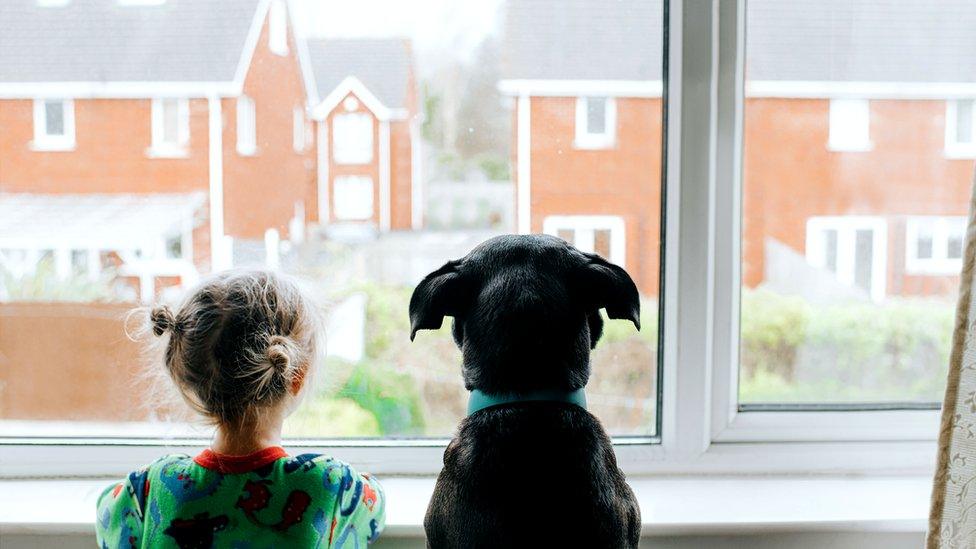
- Published23 September 2020
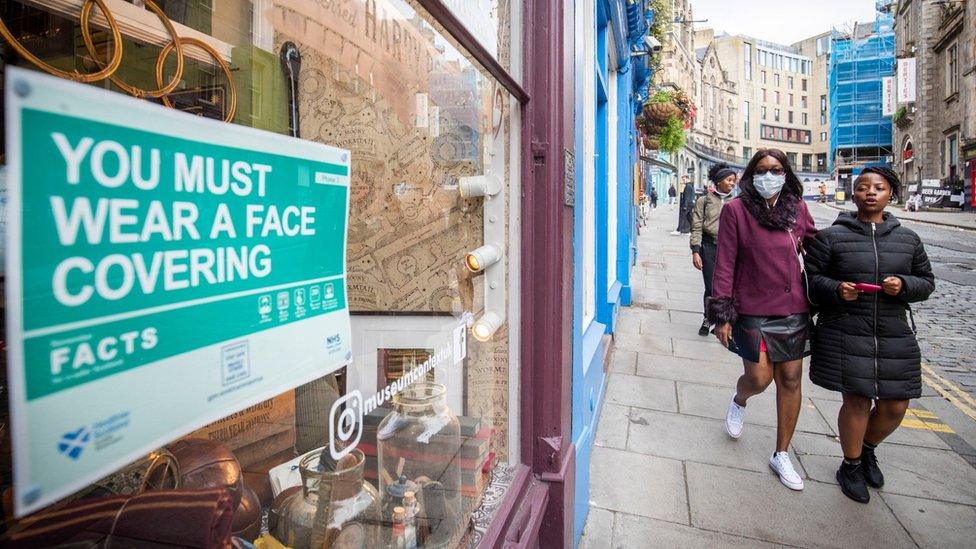
- Published1 October 2020
